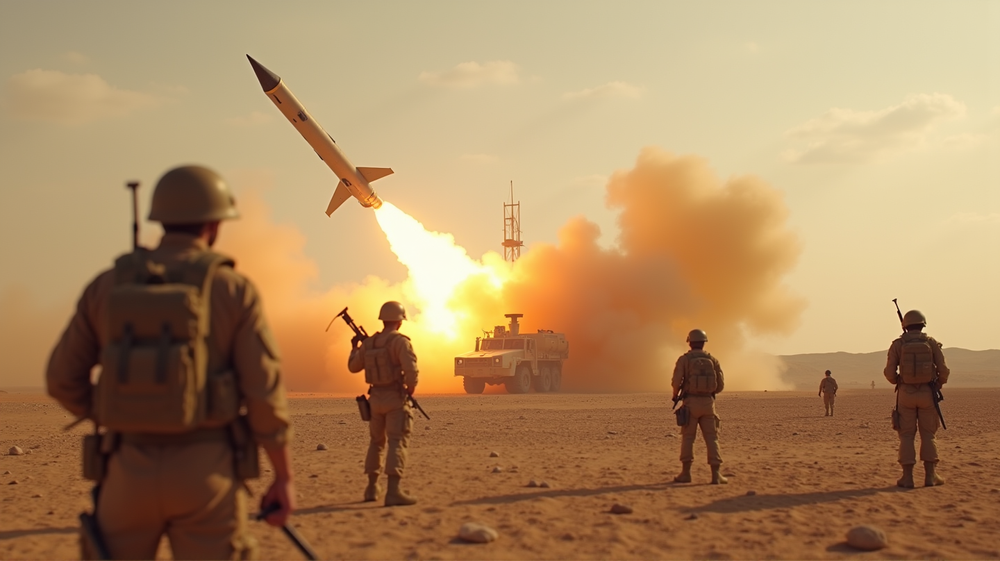In a bold move that has set the stage for a potential escalation in Middle Eastern tensions, Iran unleashed a missile attack on the U.S. Al Udeid Air Base in Qatar. In a mirrored response to the U.S. bombardment of its nuclear sites, the attack underscores the volatile nature of current geopolitical dynamics in the region.
Calm Amidst Chaos: Qatar Intercepts
Qatar played a crucial role in mitigating the immediate fallout of the attack by successfully intercepting the missiles aimed at Al Udeid. The Gulf nation’s military capabilities proved effective, as they declared their airspace secure with no reported casualties. According to PBS, their rapid response showcased resilience and commitment to maintaining peace in a troubled region.
The Synchronized Strikes: Iran’s Calculated Message
Iran’s missile strike on the airbase was notably synchronized with its narrative, marking an equal response to the U.S.’s aggressive actions against their nuclear infrastructure. “A mighty and successful response,” declared Iran, as state television broadcasted the attack, flaunting their military prowess in a bid to intensify or perhaps de-escalate regional tensions.
A Broader Conflict with Unpredictable Outcomes
The shadow of war looms over the Gulf as Iran’s retaliatory action raises concerns about a broader regional conflict. These developments bring to light the intricate geopolitical theater where the U.S., Iran, and their allies play crucial roles, leaving civilians caught in a cycle of unrest and uncertainty.
Israel: An Unexpected Player in the Dispute
Further complications arise as Israel steps into the fray, targeting symbolic sites in Tehran. This move not only signals strong disapproval of Iran’s nuclear ambitions but also highlights the multiple fronts in the evolving geopolitical chess game.
The Call for Diplomacy
Amidst the saber-rattling and fiery rhetoric, voices calling for de-escalation echo across international platforms. Diplomatic overtures stress the critical need to navigate through this perilous phase with restraint and strategic foresight, recognizing that military engagements seldom end without costly consequences.
Looking Forward: A Need for Restraint
As global powers grapple with the implications of these actions, the necessity for future restraint and diplomatic dialogue grows ever more pressing. Stakeholders are urged to reconsider their strategies to avoid plunging the region into greater turmoil, understanding that the road to peace often demands unparalleled toughness and compromise.













